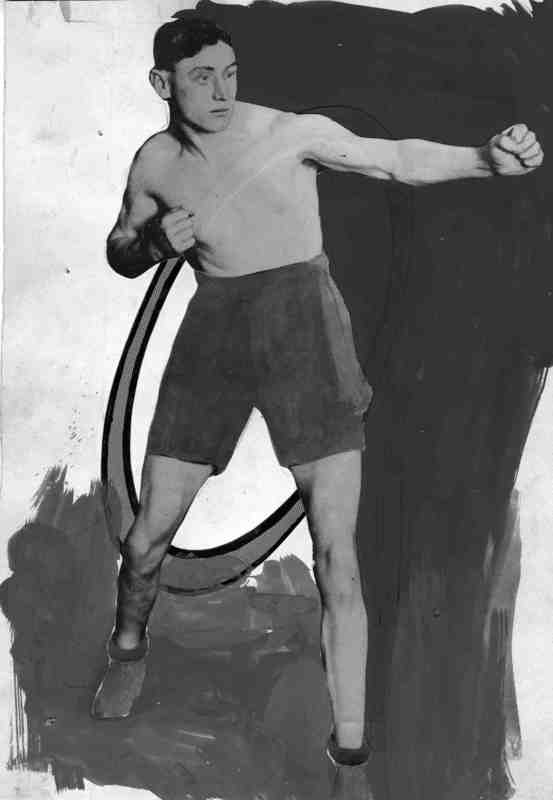
Like world champ Johnny Kilbane, Thomas McGinty saw boxing as a way out of the poverty that was endemic among Irish immigrants in early twentieth century Cleveland.
He wasn't called "Black Jack" when, in 1912, he married Helen Mulgrew from West 67th Street and the two newly weds moved into a house at 1377 West 69th Street. In 1912, he was Tommy McGinty, and he was one of Cleveland's best featherweight boxers.
Like world featherweight boxing champion Johnny Kilbane, Tommy McGinty was a second generation Irish-American who grew up in Cleveland's old Angle and saw boxing as a way out of the poverty that was endemic to the Angle in early twentieth century Cleveland. By 1909, Tommy McGinty, just like Johnny Kilbane, was boxing under the management of the legendary Jimmy Dunn. Also like Kilbane, McGinty moved uptown in the years just before World War I to what is now the Detroit-Shoreway neighborhood. However, while Kilbane went on to win the featherweight boxing title in 1912, McGinty's career was cut short in 1911 by an injury he suffered in a fight. Turning lemons into lemonade, McGinty withdrew from the ring and became one of Cleveland's earliest and most successful fight promoters.
In addition to promoting boxing matches in Cleveland, however, Tommy McGinty also promoted gambling, operating a cheat spot at 2077 West 25th street that was famously raided by Cleveland Safety Director Elliot Ness on July 21, 1936. It was his promotion of gambling that gave Tommy McGinty the moniker "Black Jack" McGinty.
While McGinty's cheat spot on West 25th street catered to a lower economic class, McGinty also provided gambling opportunities to the rich and famous. In 1930, he built the Mounds Club on Chardon Road, just across the Lake County line. The Mounds Club was famous in Cleveland for two decades as a swanky night club that featured lively entertainment, alcohol and gambling. Like McGinty's cheat spot on West 25th Street, the Mounds Club too was often the target of raids by local law enforcement officials.
In 1950, after the State of Ohio had closed down the Mounds Club, Tommy McGinty, now better known as Thomas J. McGinty, took his gambling operations national and, along with several organized crime figures from Cleveland, founded the Desert Inn in Las Vegas. McGinty's ownership of the Desert Inn, as well as his association with alleged organized crime figures Moe Dalitz and Morris Kleinman, soon drew the attention of federal authorities. In 1951, McGinty was subpoenaed to testify before Senator Estes Kefauver's committee on organized crime in America.
McGinty avoided federal prosecution and shortly thereafter retired to West Palm Beach, Florida, where he died in 1970--a long way away from the home that he and Helen Mulgrew shared on West 69th Street in 1912.
Images





